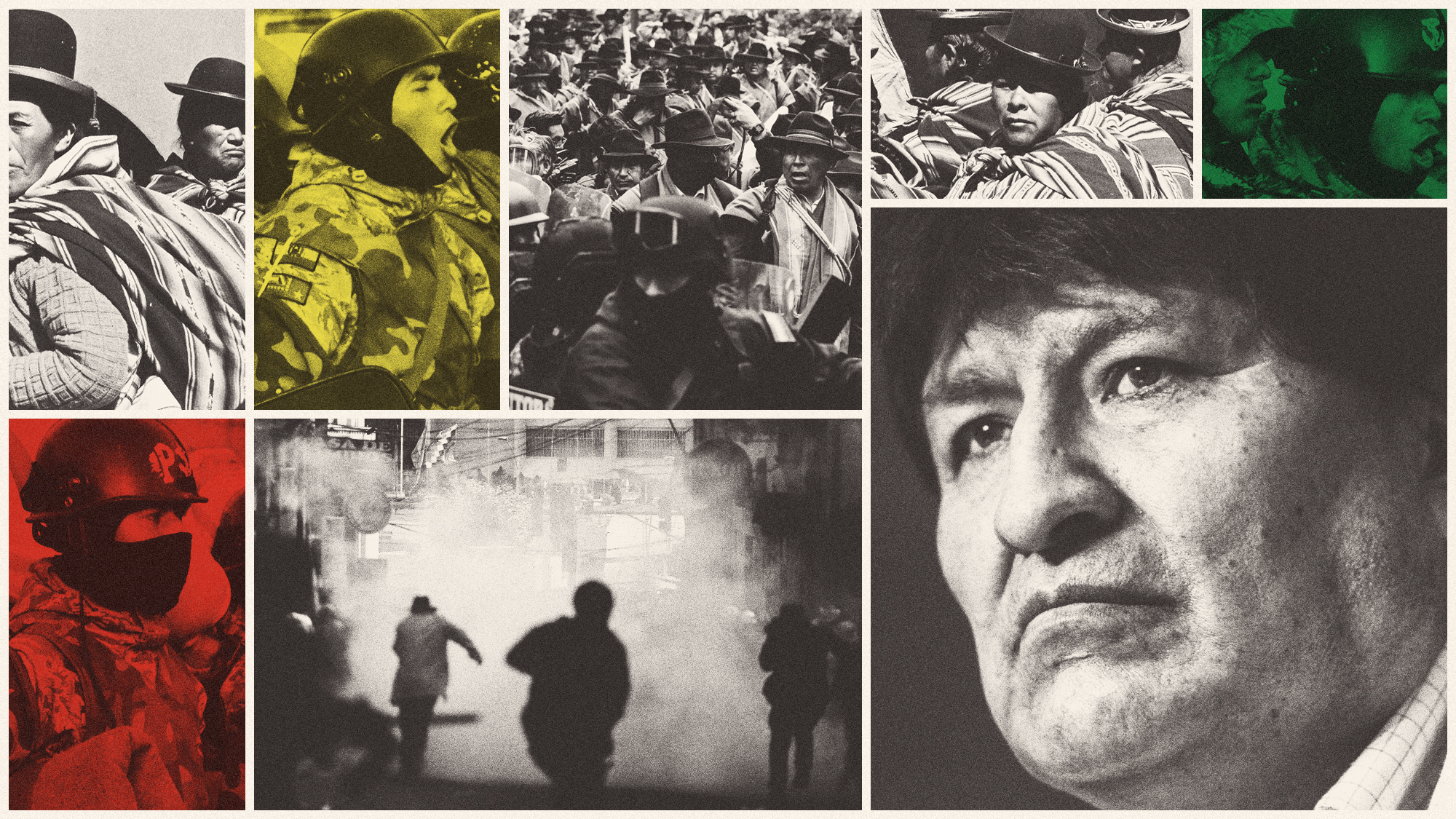Morales seeks re-election defying constitution and criminal charges
Supporters of former president clash with authorities as Bolivia's political and economic turmoil deepens

A free daily email with the biggest news stories of the day – and the best features from TheWeek.com
You are now subscribed
Your newsletter sign-up was successful
Enduring support for former president Evo Morales has once again boiled over into violence in Bolivia, deepening the nation's political and economic crisis.
At least four first responders are dead after clashes between anti-government protesters and authorities, the justice minister said last week, adding that some had been shot. "We can't call these civilian protests any more," said César Siles. "We are talking about paramilitary groups, groups that carry weapons, and we have to respond firmly."
More than 300 people have been injured in weeks of unrest after the courts blocked Morales, 65, from seeking a fourth term in the 17 August election and thus defying Bolivia's constitutional two-term limit. The demonstrations have "strangled transportation by blocking highways", said Reuters. Protests have "gained momentum" in rural areas of the Andean nation, amid "frustration" over Morales' disqualification and the "deteriorating" economic landscape, with inflation at its highest rate in nearly 20 years.
The Week
Escape your echo chamber. Get the facts behind the news, plus analysis from multiple perspectives.

Sign up for The Week's Free Newsletters
From our morning news briefing to a weekly Good News Newsletter, get the best of The Week delivered directly to your inbox.
From our morning news briefing to a weekly Good News Newsletter, get the best of The Week delivered directly to your inbox.
Socialist hero turned exile
After Morales became the first Indigenous leader of Bolivia in 2006, the former coca farmer presided over a decade of economic prosperity driven by a boom in natural gas. But in 2016, Bolivians narrowly voted against his attempt to remove presidential term limits from the constitution in a referendum. Morales chose to ignore it, running again in 2019 for an unprecedented third term as president at the head of the Movimiento al Socialismo (Mas) party.
Morales claimed to have won a vote "marred by accusations of fraud", said The Associated Press, triggering weeks of violent protests. He was forced to flee to Mexico, where he backed his finance minister, Luis Arce, as the new leader of Mas.
In 2020, Arce swept to victory. But Morales' return from exile turned the socialist allies into "bitter" rivals for the leadership of Mas. The "depth of the schism" has "paralysed the government" and exacerbated Bolivia's worsening economic crisis.
The courts upheld Bolivia's two-term presidential limit – but in February Morales announced that he would seek re-election "in defiance" of that ruling, said France24. "We will win," Morales said in his "political fiefdom" of Cochabamba, central Bolivia. He said he would run as the candidate for a small leftist group named "The Front for Victory", which has no seats in parliament, instead of Mas.
A free daily email with the biggest news stories of the day – and the best features from TheWeek.com
The charges against Morales
But Morales is also facing criminal charges. Since October, he has been "entrenched in the coca-growing region of Chapare", said The Guardian. A warrant was issued in December for his arrest on charges of human trafficking involving a minor. The claim is that he had a sexual relationship with a 15-year-old girl while in office, and allegedly fathered a child with her in 2016. Hundreds of coca farmers have been protecting him from the police and military, who are trying to execute that warrant.
In the mining town of Llallagua, a 17-year-old student was reportedly "beaten to death by protesters who accused him of being a police informant". One of the police officers was "kidnapped by a mob", according to the government, and killed with dynamite.
"[The officers] were Bolivians who gave their lives at a time when the country is under siege, facing the risk that elections might not be able to take place," said Arce.
"Morales wants to enter the elections at all costs, and he won't succeed," said economic analyst Gonzano Chávez Alvarez, a professor at the Universidad Católica Boliviana. "So there's uncertainty over whether the elections will really happen because it's hard to say whether Morales will have enough strength to stop them."
Harriet Marsden is a senior staff writer and podcast panellist for The Week, covering world news and writing the weekly Global Digest newsletter. Before joining the site in 2023, she was a freelance journalist for seven years, working for The Guardian, The Times and The Independent among others, and regularly appearing on radio shows. In 2021, she was awarded the “journalist-at-large” fellowship by the Local Trust charity, and spent a year travelling independently to some of England’s most deprived areas to write about community activism. She has a master’s in international journalism from City University, and has also worked in Bolivia, Colombia and Spain.